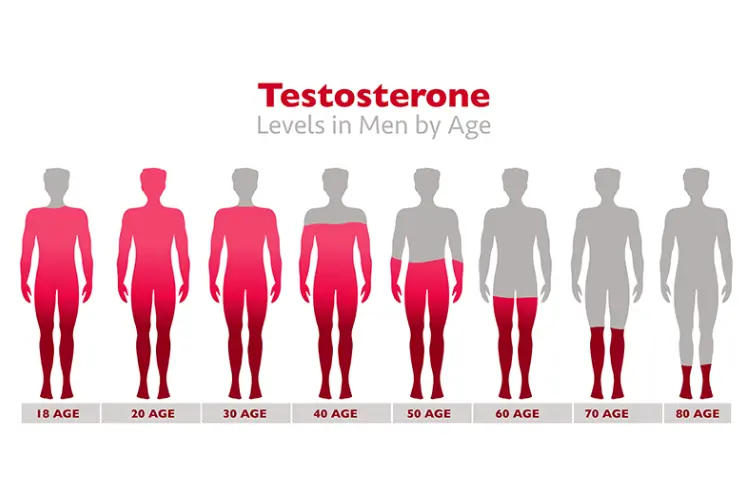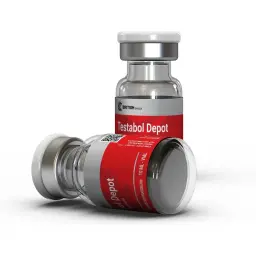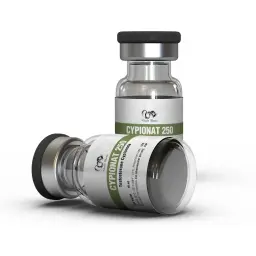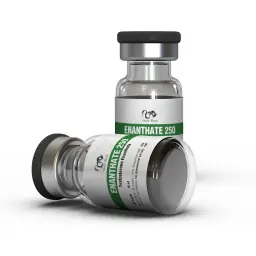Does Frequent Masturbation Impact Your Testosterone? The F acts Explained

Introduction
Many people wonder if frequent masturbation affects testosterone levels. This topic has sparked curiosity and debate, especially regarding its implications for men's health and overall well-being. Testosterone, a key hormone in the male body, plays a vital role in energy levels, muscle growth, mood regulation, and reproductive health.
Misunderstandings about the potential effects of masturbation on testosterone levels have led to confusion and unnecessary concern. In this section, we aim to clear up these common misconceptions and explore what scientific research truly reveals about this connection.
By providing clarity, we hope to foster a better understanding of how certain behaviors may or may not influence overall hormone levels and health.
If you are experiencing symptoms of low testosterone, it's important to consult a healthcare professional for proper diagnosis and advice on treatment options. In some cases, testosterone replacement therapy may be recommended to help restore healthy hormone levels and improve quality of life.
Understanding Testosterone
-
What is testosterone and why is it important?
Testosterone is a hormone produced mainly in the testicles in men and in smaller amounts in the ovaries in women. It plays a key role in developing male physical characteristics, maintaining muscle mass and bone density, supporting sex drive, and influencing mood and energy levels. It is important for overall health and well-being in both men and women.
-
Key roles of testosterone in the male body (muscle, mood, libido, etc.).
Testosterone plays several important roles in the male body, including supporting muscle growth, influencing mood, maintaining sex drive (libido), and contributing to overall energy levels and bone health.
Manufacturer: British Dragon Pharmaceuticals Manufacturer: Dragon Pharma, Europe Manufacturer: Dragon Pharma, Europe Manufacturer: British Dragon Pharmaceuticals
Substance: Testosterone Cypionate
Pack: 10 ml vial (250 mg/vial)
Substance: Testosterone Cypioante
Pack: 10 ml vial (250 mg/ml)
Substance: Testosterone Enanthate
Pack: 10 ml vial (250 mg/ml)
Substance: Testosterone Enanthate
Pack: 10 ml vial (250 mg/ml)
How Masturbation Affects Testosterone: What Science Says
Research shows that masturbation may cause brief changes in testosterone levels, but these effects are temporary. During and immediately after sexual activity, testosterone, along with other hormones like dopamine, can experience minor fluctuations. These changes, however, are short-lived, as hormone levels typically return to their baseline shortly after.
Additionally, studies indicate that the frequency of masturbation has little to no significant impact on long-term testosterone levels. This means that whether someone masturbates rarely or often, their testosterone levels generally remain within the normal range over time. It's important to note that individual factors such as age, overall health, and lifestyle habits play a far more significant role in determining testosterone levels than the frequency of masturbation.
Common Myths and Misconceptions
Definitions
Masturbation, in the simplest terms, refers to the self-stimulation of the genitals for sexual pleasure, which may or may not lead to orgasm. It is a natural behavior observed across various stages of life and cultures, practiced by people of all genders. Its prevalence and significance make it an important topic for discussion, especially in contexts of health, sexuality, and societal perceptions.
Scientific Research
Research on masturbation has consistently affirmed its role as a normal and safe aspect of human sexuality. Peer-reviewed studies highlight its numerous benefits, including stress reduction, improved sleep, and enhanced sexual function. Furthermore, masturbation is often cited as a helpful way to explore one's own body, aiding in the development of self-awareness and improving communication with sexual partners. Scientific consensus debunks many outdated misconceptions, underscoring the importance of accurate, evidence-based perspectives.
Myths Surrounding Masturbation
Despite the wealth of scientific evidence, numerous myths and misconceptions about masturbation persist. Common false claims include beliefs that it causes physical harm, such as blindness or infertility, or that it leads to addiction. These myths are rooted in historical moral and cultural stigmas rather than factual evidence. Addressing these misconceptions is critical, as they can perpetuate unnecessary guilt or fear in individuals.
Short-Term vs. Long-Term Effects
The short-term effects of masturbation are generally positive, including the release of endorphins, which enhance mood and reduce stress. Additionally, it can provide temporary relief from physical tension and promote better sleep. Long-term effects are similarly beneficial when practiced within moderation. Studies indicate that regular masturbation does not negatively impact physical or mental health and may even decrease the risk of prostate cancer in men and help individuals maintain sexual responsiveness as they age.
Related Health Topics
Fertility
One persisting myth is that frequent masturbation harms fertility. However, scientific studies show that masturbation does not affect fertility for men or women. For men, ejaculation—including through masturbation—can improve sperm quality by removing older sperm cells and allowing healthier ones to take their place.
Muscle Health
There is a misconception that masturbation impacts muscle growth or testosterone levels in a way that hinders athletic performance or fitness goals. This is not supported by current evidence. Fluctuations in testosterone due to masturbation are minimal and do not significantly affect muscle development or performance.
Mental Health
Masturbation can improve mental health by reducing stress and anxiety and promoting relaxation. For some, it can even serve as a safe coping mechanism for managing emotions. However, in rare cases, excessive masturbation linked to underlying compulsive behaviors may have psychological implications. Addressing such cases requires professional guidance and balance.
Actionable Advice
Promoting a healthy and informed perspective on masturbation involves several steps:
-
Educate Yourself: Seek information from credible, evidence-based resources to understand the facts.
-
Practice Moderation: While masturbation is safe and normal, ensure it does not interfere with daily responsibilities, relationships, or well-being.
-
Talk Openly: If you have questions or concerns about your sexual health, consider discussing them with a trusted medical professional.
-
Challenge Stigma: Recognize and question societal or cultural stigmas tied to masturbation by sharing and supporting accurate information.
-
Focus on Self-Care: Use masturbation as a form of exploring self-pleasure while respecting your physical and emotional limits.
By addressing these diverse areas with clarity and evidence, individuals can better understand their bodies and eliminate unnecessary shame or misconceptions.
Other Factors That Influence Testosterone Levels
Testosterone levels are influenced by a variety of lifestyle and health factors that play a significant role in hormone regulation. These factors include maintaining a balanced diet, getting sufficient high-quality sleep, engaging in regular physical activity, and avoiding excessive alcohol consumption and smoking. Additionally, age and certain medical conditions can also affect testosterone production over time. Establishing and maintaining a healthy lifestyle is crucial for supporting balanced hormone levels.
Compared to these factors, the impact of masturbation on testosterone levels is minimal, often negligible in scientific studies. Prioritizing healthy habits, such as exercise and proper nutrition, promotes overall well-being and has a more substantial effect on maintaining hormone balance. By focusing on these positive lifestyle elements, individuals can better support their hormonal health and overall vitality.
Potential Benefits and Risks of Masturbation
Masturbation can offer several health benefits, many of which are supported by scientific research. For instance, it is known to reduce stress, release endorphins, and improve overall mood. Engaging in masturbation can also help with relaxation and promote better sleep. Additionally, it provides an opportunity for individuals to explore their own bodies, which may lead to a better understanding of personal preferences and improved sexual health.
However, masturbation may pose risks if it begins to interfere with one's daily life. Excessive masturbation, for instance, can sometimes lead to feelings of guilt, shame, or psychological distress, particularly if cultural or personal beliefs conflict with the behavior. It can also negatively affect relationships if it acts as a substitute for intimacy or creates distance between partners. Like any habitual activity, moderation and mindfulness are key to ensuring balance and maintaining overall well-being.
Signs of Low Testosterone
Low testosterone, also known as low T, can manifest through a variety of symptoms that may affect both physical and mental health. Some common signs include persistent fatigue and a noticeable decrease in energy levels, which can impact daily activities.
A reduction in muscle mass and strength is another key indicator, often accompanied by an increase in body fat. Individuals may also experience a diminished sex drive or difficulties with sexual performance.
Mood changes, such as feelings of irritability, sadness, or even depression, are frequently reported, along with challenges in maintaining focus and concentration. If these symptoms are experienced consistently, it is essential to consult a healthcare professional for a thorough evaluation and appropriate guidance. Early identification and treatment can help address the root cause and improve quality of life.
Treatments and Solutions for Low Testosterone
Medical Treatments
One of the most common medical interventions is injection testosterone or testosterone replacement therapy (TRT). This therapy involves supplementing the body's natural testosterone through methods such as injections, transdermal patches, topical gels, or implants. It is essential for individuals considering TRT to consult a healthcare professional, as proper monitoring ensures safety and effectiveness while minimizing potential side effects.
Lifestyle Modifications
Lifestyle changes can also play a crucial role in managing low testosterone levels. Maintaining a healthy weight is paramount, as obesity can lower testosterone production. Incorporating regular strength and resistance training sessions has been shown to naturally boost testosterone levels. Additionally, consuming a nutrient-rich diet that includes foods high in zinc, vitamin D, and healthy fats can support hormonal health.
Stress Reduction and Sleep Improvement
Since stress and sleep deprivation significantly affect hormonal function, implementing stress management techniques, such as mindfulness or meditation, and ensuring seven to nine hours of quality sleep each night can help restore testosterone balance.
Natural Supplements
Certain supplements, like ashwagandha, fenugreek, and D-aspartic acid, have been researched for their potential to increase testosterone levels naturally. However, these should only be used under the guidance of a healthcare provider to ensure they are safe and effective for one's specific health needs.
Combining medical interventions with lifestyle improvements and focusing on holistic well-being can make a meaningful difference for individuals experiencing low testosterone. Consulting with professionals and maintaining an informed approach ensures sustainable and positive results.
Frequently Asked Questions
Does abstinence increase testosterone?
Some studies suggest that short-term abstinence may cause a temporary increase in testosterone levels, but the effect is usually small and not long-lasting. Over the long term, abstinence does not significantly affect testosterone levels in most people.
Can masturbation affect muscle building?
Masturbation does not have a significant effect on muscle building. It does not impact testosterone levels or muscle growth in a way that would hinder progress in strength training or bodybuilding.
Is there an ideal frequency for sexual activity?
There is no single ideal frequency for sexual activity. It varies for each individual and couple, depending on factors like age, health, relationship satisfaction, and personal preference. The most important thing is that both partners feel comfortable and satisfied with their level of intimacy.
Conclusion
In summary, the main findings highlight the importance of understanding how various factors affect hormonal balance. Current scientific research provides reassurance that maintaining healthy habits can support hormonal health. We encourage you to focus on a balanced lifestyle, including proper nutrition, regular exercise, and stress management, to promote optimal hormonal function.
References:
-
Cleveland Clinic – What Can (and Can't) Cause Low Testosterone
https://health.clevelandclinic.org/causes-of-low-testosterone-myths-and-truths
Covers myths and facts about low testosterone, including the effects of masturbation. -
Healthline – Masturbation and Testosterone: What's the Connection?
https://www.healthline.com/health/masturbation-and-testosterone
Explains the science behind masturbation and testosterone, including short- and long-term effects. -
Legacy – How does masturbation affect testosterone levels?
https://www.givelegacy.com/resources/masturbation-testosterone/
Provides a summary of scientific research and frequently asked questions. -
Numan – Does masturbation decrease testosterone?
https://www.numan.com/low-testosterone/causes/does-masturbation-decrease-testosterone
Breaks down the myths and provides medical insights into the effects of masturbation on testosterone. -
Mayo Clinic – Testosterone therapy: Potential risks and benefits as you age
https://www.mayoclinic.org/healthy-lifestyle/sexual-health/in-depth/art-20045728
Discusses testosterone, its role, and factors that influence its levels. -
PubMed – Endocrine response to masturbation-induced orgasm in healthy men following a 3-week sexual abstinence (Exton et al., 2001)
https://pubmed.ncbi.nlm.nih.gov/11760788/
A scientific study referenced by many articles, examining hormonal changes after masturbation and abstinence. -
National Institutes of Health – Testosterone and Health in Men
https://www.ncbi.nlm.nih.gov/pmc/articles/PMC6016048/
Overview of testosterone's role in male health and factors influencing its production. -
Harvard Health Publishing – Testosterone: What It Does and Doesn't Do
https://www.health.harvard.edu/mens-health/testosterone-what-it-does-and-doesnt-do
Explains testosterone's functions and common misconceptions.
Articles

In simple terms, it refers to any substance that enhances physical performance and appearance. This includes anabolic steroids and PEDs such as Human Growth Hormone (HGH) and Testosterone. These substances work by increasing protein synthesis within muscle cells, leading to rapid growth and recovery.

What is bitcoin? Bitcoin is imaginative Internet Protocol that empowers worth to be moved over a correspondences channel. Exchanges are made with no brokers so anybody can move cash anyplace on the planet without...

In order to build muscle effectively, an adequate intake of protein is important. These serve primarily as a building material in the muscles, but can also stimulate the body's own protein synthesis. This means that an eaten protein stimulates the synthesis of the new protein in the body after...
PandaRoids Reviews
Please leave your review on products or service below.
For discounts, please contact us


